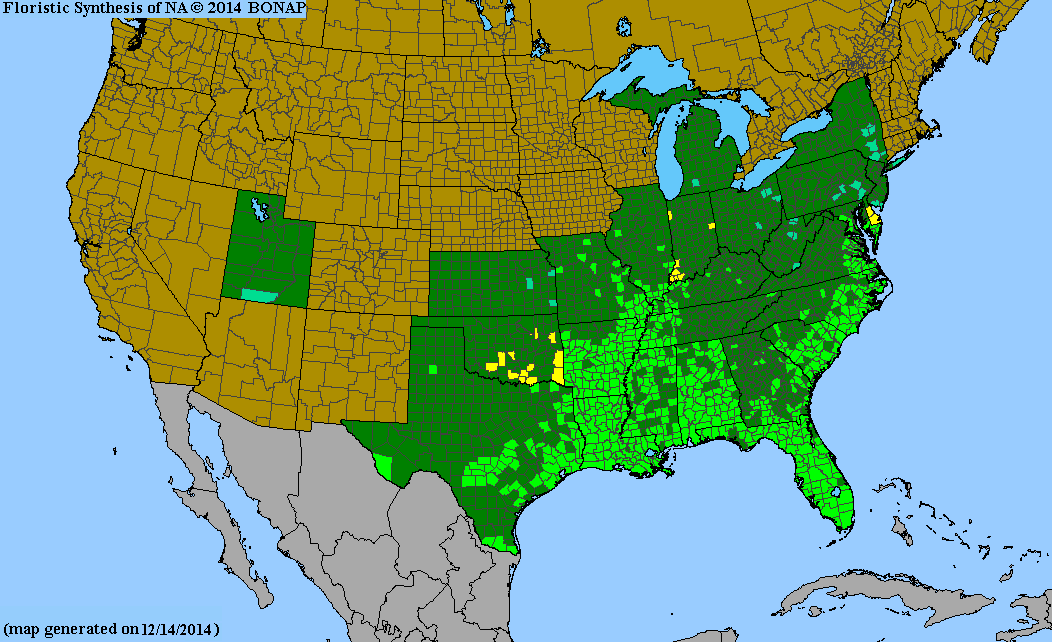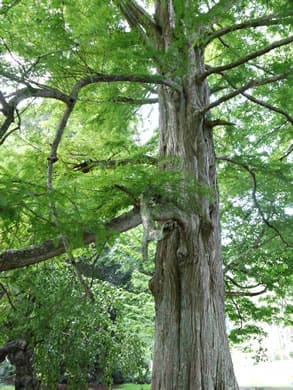Cupressaceae
bald cypress
Taxodium distichum
Synonyms
Cuprespinnata disticha
Cupressus disticha
Cupressus laeta
Schubertia disticha
Taxodium distichum var. typica
Other Common Names
swamp cypress
Plant Type
Large Tree (greater than 25 ft)
Life Cycle
Perennial
Typical Size
50-70 ft. tall
20-30 ft. wide
Tolerant of
Occasional Flooding
Propagation
By seed
Plant Planting Notes
Provide adequate space for this large growing tree.
Plants/Diseases
No significant disease or pest issues.
Wildlife Benefits
Host plant for butterfly larvae, Fruit/seeds for birds
Leaves
Needles alternate or whorled, lanceolate or linear turning from green to gold to yellow in fall.
Flowers
Male flowers appear as long drooping panicles. Female flowers are toward the ends of the branches.
Fruit
Round cones with irregular, thick scales.
Bark
The bark is dark brown to gray that exfoliates in vertical strips.
Toxicity
No known toxicity.

USDA Hardiness Zones
4, 5, 6, 7, 8, 9
Light Exposure
Full Sun, Part Sun/Shade
Soil Drainage
Well-drained, Poorly Drained
Soil pH
Acidic (less than 6.0)
Native in South Carolina?
Yes
Plant Native Habitat
Brown and blackwater swamps, bottomland forests, lake margins, and river banks.
Global Conservation Status (NatureServe)
Secure (G5)
Federal Conservation Status (USFWS)
Not Listed
Distribution Notes
Common in the coastal plain and rare in the piedmont.




